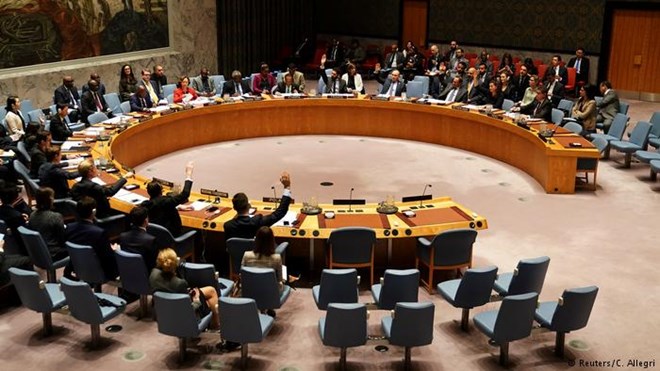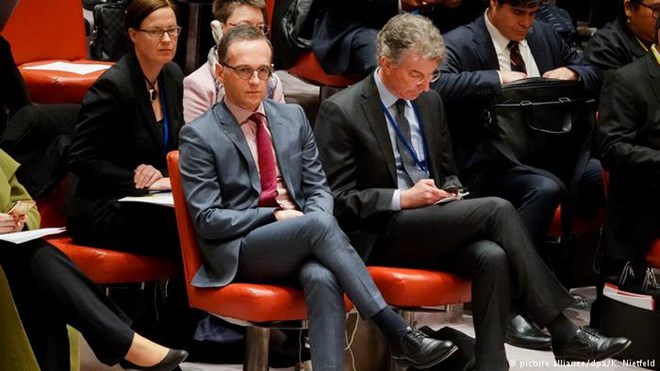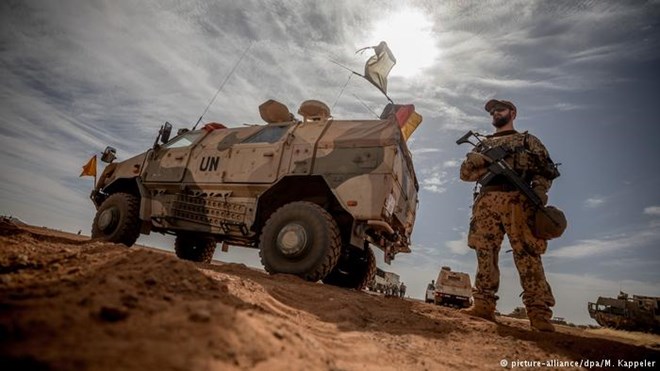
Tuesday January 1, 2019

Germany is once again occupying a non-permanent seat on the UN Security Council. How does it plan to use it — and what is the country's current involvement in UN missions?
German Foreign Minister Heiko Maas' business trip to New York in June has borne fruit. He had long been making the case for Germany to have a non-permanent seat on the UN Security Council, the United Nations' most important body.
The decision to award the Germans a seat on the Council alongside the five permanent members — the United States, Russia, China, France and the United Kingdom — and nine other non-permanent members was a clear one: 184 votes out of a possible 193. Germany took up its place on January 1.
The agenda: A strong Europe
Germany has a lot of plans it wants to implement over the next two years. At the UN General Assembly in September, Foreign Minister Maas advocated strengthening multilateralism, which has come under pressure from, among other things, the "America First" policies of US President Donald Trump.
"The United Nations is at the heart of the multilateral system," said Maas before departing for New York earlier this year. "We are living at a time when we need more international order, more reliability, more confidence in our common rules. The United Nations is as strong, just and effective as its members make it."

Heiko Maas at the UN (picture alliance/dpa/K. Nietfeld)
Germany also intends to advocate for a strong UN and a strong role for Europe in its various bodies. Over the next two years, Germany's main concern will be to try and ensure that the European Union as a whole is given a permanent seat. After Brexit, the only EU country represented on the Council will be France.
Opposing medium-range missiles
Crisis prevention is also on the agenda. The German presence on the Security Council will aim to ensure that the body gets involved earlier than it has done up to now in crisis regions. Germany also has some ideas about how to foster peace. The German ambassador to the UN, Christoph Heusgen, has announced that he wants to recruit more women for conflict resolution. "Women bring in different life experiences and perspectives from men, and this can help find compromises, reconcile enemies and make peace," the diplomat said.
But peacekeeping should also happen on one's own doorstep. At the end of December, Foreign Minister Maas made it clear that if the 30-year-old INF treaty between Russia and the US that bans medium-range weapons were to collapse, Germany would want to use its seat to oppose the deployment of medium-range missiles. "Any stationing of new medium-range missiles would come up against widespread opposition in Germany," said Maas.

Bundeswehr troops in Mali (picture-alliance/dpa/M. Kappeler)
Participation in UN missions
This is the fifth time that Germany has been invited to be a guest on the Security Council for the two-year term. Many observers say it should have a permanent seat — not least because the country has gained worldwide respect and recognition in recent years by participating in UN security missions, which the UN Security Council issues mandates for.
Germany's soldiers and police officers are currently involved in eight of the UN's 14 missions. The biggest deployment of Bundeswehr soldiers is in Mali, where they're part of the MINUSMA stabilization mission. Around 110 Germans are helping to support the domestic peace and reconciliation process in the country. The hope is that this will also help to stabilize the whole West African region.
In Lebanon, Germany is involved in UNIFIL, one of the longest-standing UN missions. German forces are also active in Sudan, South Sudan, Somalia, Western Sahara, Libya and Haiti. In all these missions, Germany not only contributes personnel, but supports the peacekeeping process with mobile training teams as well.